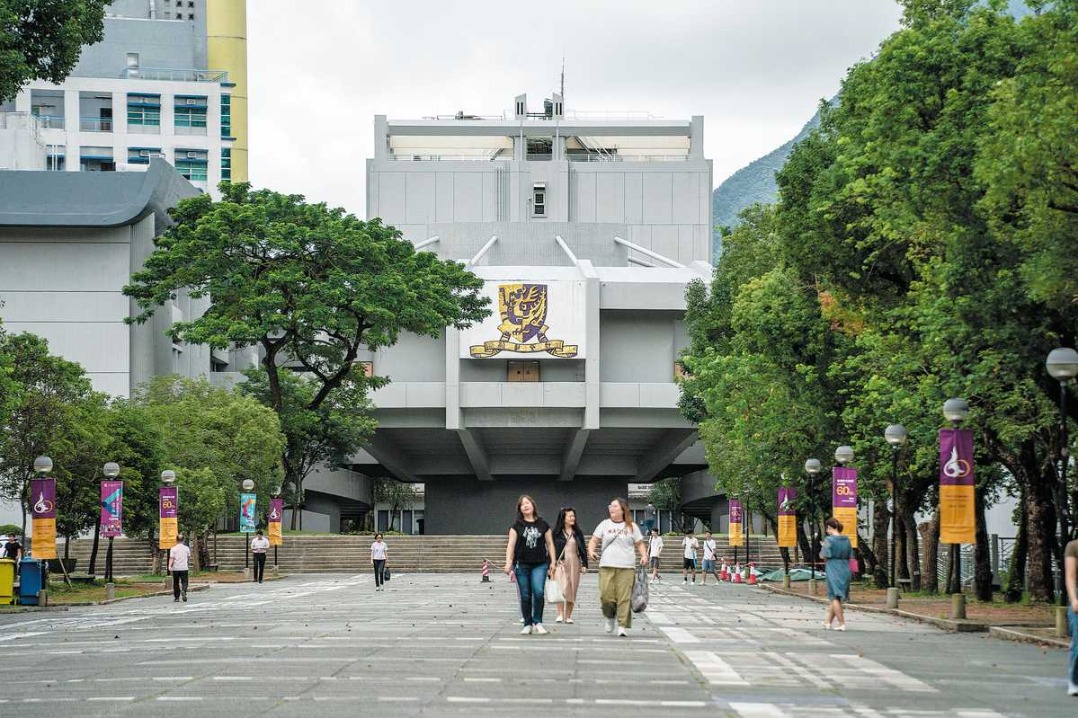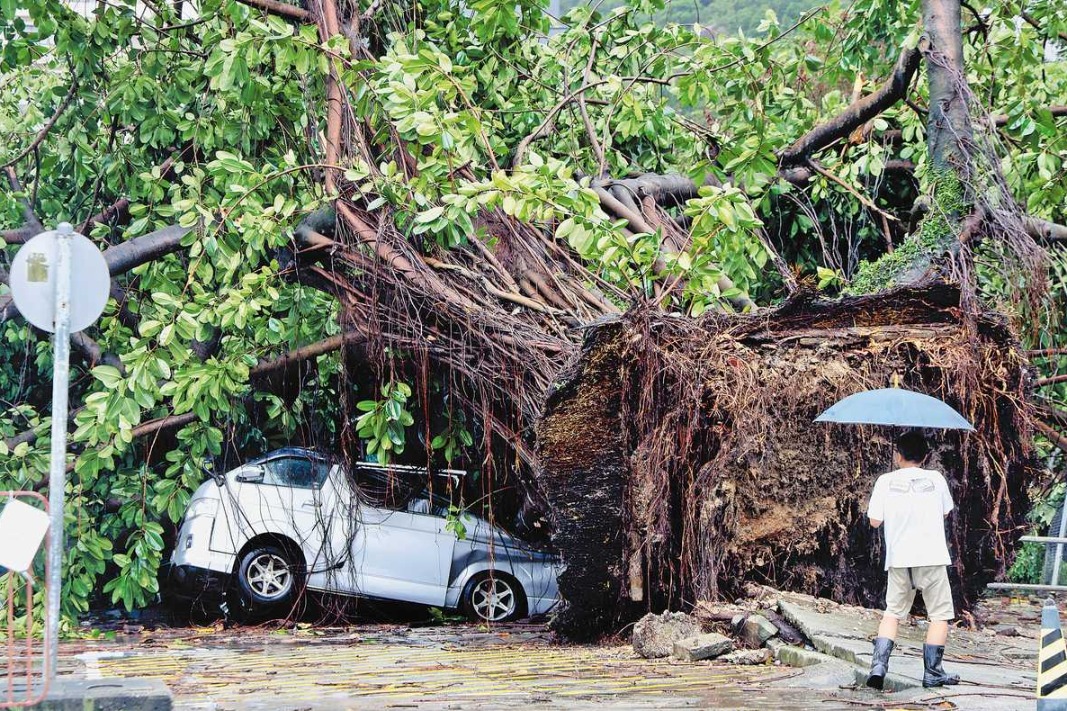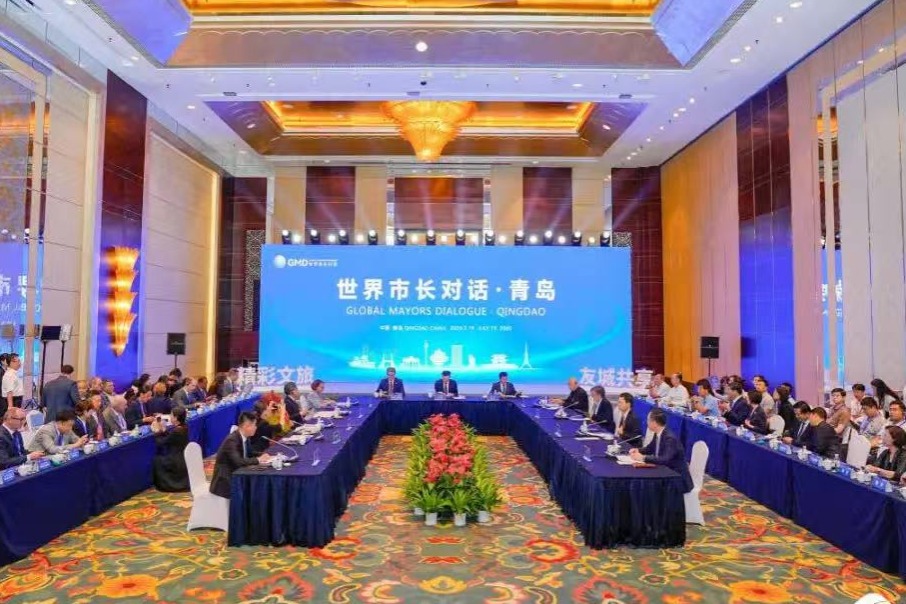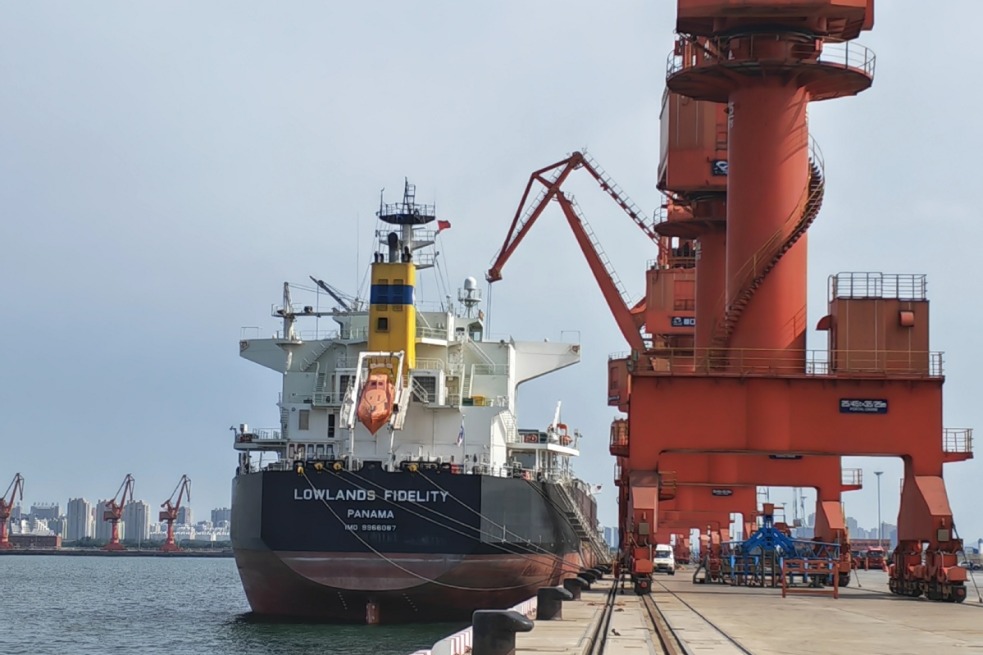Gateway to success
The EU should abandon camp confrontation thinking and work with China to foster global development


The EU should abandon camp confrontation thinking and work with China to foster global development
As the world's demands for economic recovery, economic transformation and infrastructure are rising in the post-pandemic era, global cooperation on connectivity ushers in a new round of boom. The European Union is trying to capitalize on this.
In December 2021, it launched the Global Gateway strategy, which focuses on increasing cooperation with developing countries on connectivity and proposes to raise 300 billion euros ($319.8 billion) by 2027 to invest in key infrastructure projects in regions including Eastern Europe, Africa, the Middle East and Southeast Asia.
Compared with the EU's previous documents on connectivity, the new strategy gives more emphasis on economic cooperation by proposing six principles — democratic values and high standards, green and clean infrastructure, good governance and transparency, equal partnerships, security focused and catalyze private sector. It has also identified five priority investment areas, namely, the digital economy, climate and energy, transport, health and education and research.
However, the strategy was made more because of the decline in the EU's international economic status, the difficulties of its economic transformation and geopolitical interests. While continuing with the "hard power" framework of the EU's previous connectivity programs, the strategy strengthens the "soft power" orientation of exporting its values, and sets exclusive political conditions and high standard barriers. At present, there are obvious constraints to the smooth progress of the strategy, and it is still difficult to get rid of the strategic inertia of the EU's empty talk about foreign cooperation.
First, the strategy overemphasizes so-called values and high standards. On the one hand, it labels investment in infrastructure as investing in "democratic values", emphasizes cooperation with so-called like-minded partner countries, and clearly focuses on maintaining security and resisting economic coercion for geopolitical purposes. On the other hand, it focuses on the deployment of digital networks, the green economy, intelligent transportation and other infrastructure areas where global rules and standards have not yet been established. It highlights building infrastructure with high standards and fully promotes the EU's concepts, rules and standards in the digital, green and other "vacuum zones" in developing countries.
Second, it ignores the acceptance of the target countries for cooperation. The EU's cooperation with developing countries has been affected by its long-term colonial history. At a time when countries cherish sovereignty and autonomy, the acceptance of the "democratic values" attached by the EU in developing countries is questionable, and Europe's "either this or that" confrontational thinking is vulnerable to resistance and antipathy.
Besides, compared with its previous connectivity plans, the implementation path of the Global Gateway strategy excessively centers on "fashionable" issues such as new energy, green transformation and digital transformation, which are not only different from the developing countries' aspirations for development and intentions for foreign cooperation, but also separate from the advantages of the EU's own international competitiveness. The strategy may be unrealistic for those developing countries that feature weak industrial foundations.
The Global Gateway strategy also sets up conditions for high-standard cooperation unilaterally and insists on investing in "good governance" and "high transparency "projects. When it is implemented, the strategy will inevitably encounter difficulties in terms of public support and acceptance in the target countries.
Finally, the constraints are quite prominent. The EU's governance system does not match its strategic ambition, and its member states' political attitude toward the strategy varies. Germany, the Netherlands and other large capital investors are cautious. Central and Eastern Europe and the Baltic countries show little interest in it. Italy, Portugal, Malta and other countries with a tight budget in southern Europe have already criticized it.
In addition, the complicated and lengthy decision-making mechanism of EU institutions and the complexity of internal contradictions in EU members, have further added to the uncertainty of the plan's implementation.
Since 2020, the EU has been facing downward economic pressures because of the COVID-19 pandemic, the Russia-Ukraine conflict and other serious shocks. Dragged down by macroeconomic fundamentals, the Ukraine crisis has further increased the pressure on energy infrastructure construction within the EU itself.
At the same time, the risks for the world economy have risen. The US Federal Reserve and the European Central Bank have raised interest rates and shrunk their balance sheets. The risk aversion of international capital has risen. The developed economies are short of liquidity. The strategies of international investors have become increasingly conservative. The external financing has become even more difficult for the strategy.
At present, the COVID-19 pandemic and the Ukraine crisis have badly upset the global supply chains and energy and food security, and global development has encountered serious setbacks.
As an important way to coordinate and boost development worldwide, connectivity can drive infrastructure investment and construction in developing countries, inject new momentum in the stability and recovery of the world economy, and accelerate the realization of goals for global growth.
Over years of efforts, the China-proposed Belt and Road Initiative has adhered to the principle of openness and inclusiveness, upheld the banner of peaceful development, and actively deepened economic partnerships with developing countries and regions. A large number of key infrastructure projects have been developed and are progressing well in countries and regions participating in the initiative. They have already developed in both scale and brand influence, bringing tangible benefits to local people.
The EU should strive to explore the complementarity between the Global Gateway strategy and the Belt and Road Initiative to give full play to their respective advantages, especially in Africa and Southeast Asia. The EU and China should combine the existing third-party market cooperation mechanisms between them, adhere to the principle of "wide consultation, joint contribution and shared benefits", and build a number of exemplary projects.
As a defender of multilateralism, the EU should abandon value-based camp confrontation thinking and unilateralism while promoting connectivity cooperation, work with China to foster global development, and enhance the sense of gain of the people in the host countries.
The author is an associate researcher at the Institute of European Studies at the Chinese Academy of Social Sciences. The author contributed this article to China Watch, a think tank powered by China Daily.
Contact the editor at editor@chinawatch.cn

































